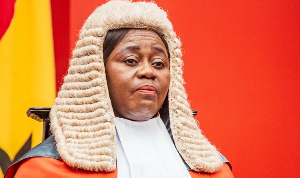
President John Mahama has taken a decisive step in addressing public petitions for the removal of Ghana’s Chief Justice. Allegations of misconduct and bias in key judicial rulings have prompted widespread calls for accountability, leading the President to consult the Council of State for advice on this matter.
Background
The petitions submitted allege judicial bias and misconduct, sparking debates on the credibility of Ghana’s judiciary. President Mahama’s consultation with the Council of State follows constitutional guidelines for addressing such petitions.
What President Mahama Said
In a statement, President Mahama emphasized the importance of safeguarding judicial independence while addressing public concerns. He reaffirmed his commitment to following due process to maintain confidence in the judiciary.
Reactions to Mahama’s Move
1. Civil Society Response
Organizations like OccupyGhana and the Ghana Bar Association have praised the President’s decision, calling for a transparent investigation into the allegations.
2. Political Opposition
The New Patriotic Party (NPP) has criticized the move, suggesting it might undermine the judiciary’s independence. They’ve labeled the process as politically motivated.
3. Expert Analysis
Legal experts have expressed varying views. While some commend Mahama’s consultative approach, others caution against any potential executive overreach that could set a dangerous precedent.
Next Steps in the Petition Process
The Council of State is expected to deliberate and provide recommendations to the President in the coming weeks. Depending on their feedback, President Mahama could initiate formal proceedings for the Chief Justice’s removal, as outlined in Ghana’s constitution.
Why This Matters
This issue underscores the delicate balance between judicial accountability and independence in a democratic society. The outcome could shape future interactions between Ghana’s executive and judiciary branches, impacting public trust.
For more on the topic, go to GhanaWeb.